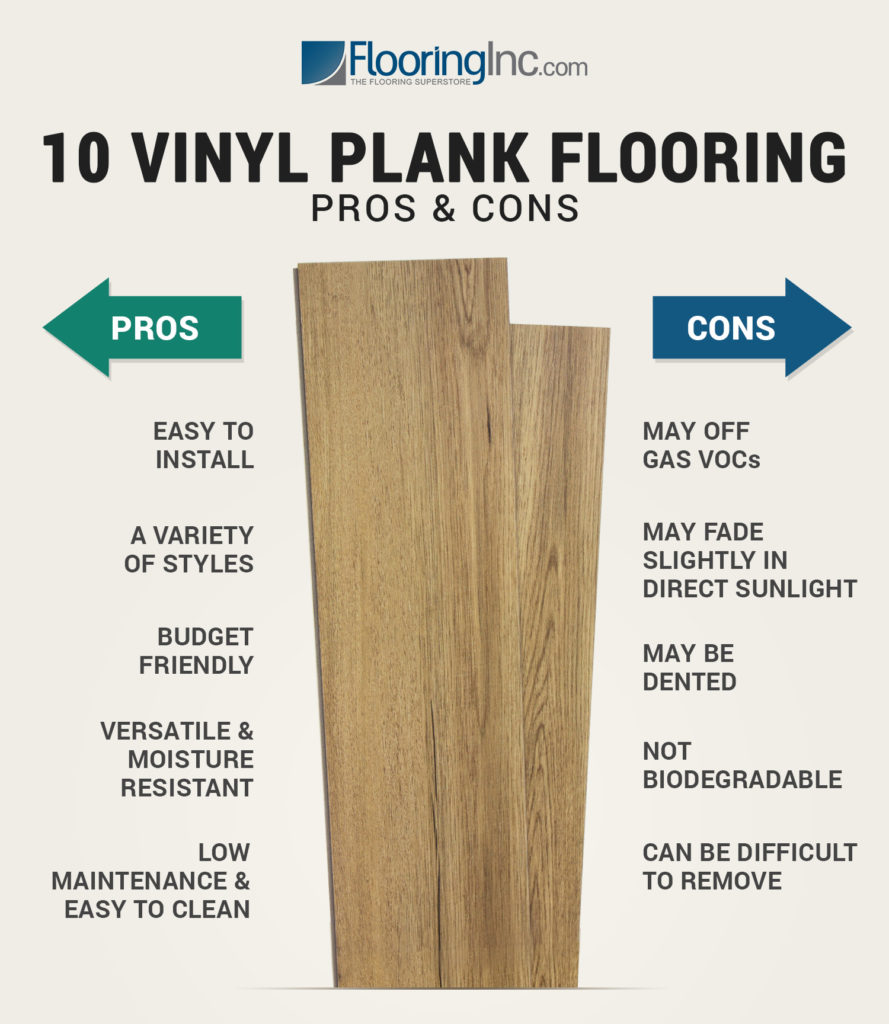When it comes to choosing flooring for your home, there are so many options to consider. Have you thought about vinyl flooring? It’s become quite popular in recent years, but like anything, it has its pros and cons. In this article, we’ll dive deeper into the world of vinyl flooring and explore its benefits and drawbacks. So, if you’re looking for a flooring option that’s affordable, durable, and water-resistant, keep reading to find out if vinyl flooring is the right choice for you.
Vinyl flooring is a versatile option that can be used in various rooms throughout your home. It’s particularly suitable for kitchens, bathrooms, and basements where moisture and spills are common. With its water-resistant properties, vinyl flooring is a practical and low-maintenance choice for areas prone to wetness. Additionally, vinyl flooring is durable and can withstand heavy foot traffic, making it a great choice for busy households. However, it’s important to note that vinyl flooring may not be as visually appealing or luxurious as other flooring options, such as hardwood or ceramic tiles. If aesthetics are a top priority for you, you may want to consider other alternatives. But if affordability and functionality are what you’re after, vinyl flooring might be the perfect fit for your home. So, let’s explore more in the article and weigh the pros and cons together! When it comes to flooring options, vinyl flooring is a versatile and popular choice for many homeowners. It offers several advantages over other types of flooring, but it also has some drawbacks to consider. In this article, we will explore the pros and cons of vinyl flooring to help you make an informed decision for your home.
Pros of Vinyl Flooring
1. Durability
One of the key benefits of vinyl flooring is its exceptional durability. Vinyl is known for its ability to withstand heavy foot traffic without showing signs of wear and tear. It is resistant to scratches, gouges, and stains, making it an excellent choice for high-traffic areas like kitchens, hallways, and living rooms. Vinyl flooring is also resistant to moisture, making it suitable for areas like bathrooms and basements.
2. Water Resistance
Vinyl flooring is highly resistant to water, which is a significant advantage in areas prone to spills or high humidity. Unlike other flooring options like hardwood or laminate, vinyl will not warp, buckle, or swell when exposed to moisture. This makes it an excellent choice for kitchens, bathrooms, and laundry rooms, where spills and water damage are common.
3. Affordability
Vinyl flooring is generally more affordable compared to other flooring materials like hardwood or natural stone. It offers a cost-effective solution for homeowners who want a durable and aesthetically pleasing flooring option without breaking the bank. Vinyl flooring comes in a wide range of price points, so you can find a product that fits within your budget.
4. Variety of Designs
Vinyl flooring offers a vast selection of designs, patterns, and colors to choose from. Whether you prefer the look of hardwood, stone, or tile, you can find vinyl flooring that closely mimics the natural material at a fraction of the cost. Vinyl planks can replicate the appearance of real wood, while vinyl tiles can mimic the look of ceramic or porcelain tiles. This versatility allows you to achieve the desired aesthetic for your space without compromising on durability or affordability.
Cons of Vinyl Flooring
1. Not as Long Lasting as Hardwood
While vinyl flooring is durable, it does not have the same longevity as hardwood flooring. While hardwood floors can last for decades with proper care and maintenance, vinyl floors typically have a shorter lifespan. However, modern manufacturing techniques have significantly improved the durability of vinyl flooring, allowing it to last for many years with proper maintenance.
2. Can Emit VOCs
Some vinyl flooring products can emit volatile organic compounds (VOCs) into the air, which can be harmful to your health. VOCs are chemicals that can be released from certain materials, including vinyl flooring, and can contribute to indoor air pollution. When choosing vinyl flooring, look for products that are low in VOCs or have been certified as environmentally friendly.
3. May Not Add Value to the Home
While vinyl flooring offers many advantages, it may not add significant value to your home compared to other flooring options like hardwood or natural stone. This is something to consider if you are planning to sell your home in the future. However, the affordability and durability of vinyl flooring can still make it an attractive option for homeowners who prioritize functionality and cost-effectiveness over resale value.
Conclusion
Vinyl flooring is a versatile option for various rooms in the house, offering durability, water resistance, and a wide range of design choices. It is an excellent choice for high-traffic areas and spaces prone to moisture, such as kitchens, bathrooms, and basements. However, it may not have the same longevity or value as hardwood floors. Consider the specific needs of each room and weigh the pros and cons before making a decision. With proper care and maintenance, vinyl flooring can provide a beautiful and functional flooring solution for your home.
